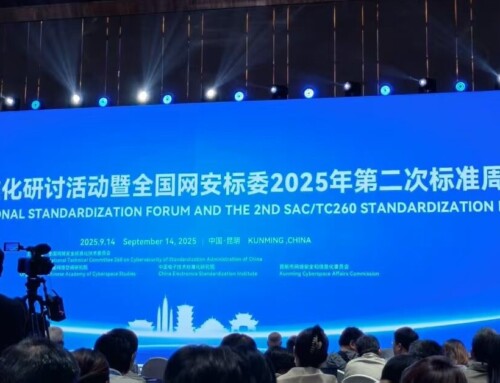From July 16 to 18, the 9th Symposium on Technologies, Standards, and Regulations for Intelligent and Connected Vehicles (hereinafter referred to as “ICV2024”) was held in Yancheng, Jiangsu Province. This event included a main forum and six sub-forums, aiming to provide a comprehensive platform for policy and regulation interpretation, international exchange, and for displaying the latest achievements in the Intelligent and Connected Vehicles (ICV) industry.
In the main forum, An Tiecheng, Chairman of the China Automotive Technology and Research Center (CATARC), pointed out that the current regulatory system for ICV products in China mainly consists of four elements: i) the issuance of the Opinions on Strengthening the Access Management of ICV Manufacturing Enterprises and Products, which clarifies the management principles and key directions; ii) the implementation of self-inspection requirements for enterprises, laying the foundation for the subsequent exploration of the regulatory system; iii) the initiation of an OTA upgrade filing system, gradually regulating the software upgrade activities of enterprises; and iv) the promotion of pilot projects for ICV access and road testing. In the future, China’s ICV regulation will focus on three main aspects, namely: i) cybersecurity and data security management for enterprises and products; ii) software upgrade management for enterprises and products; and iii) access management for vehicles with Level 3 and Level 4 autonomous driving functions.
Dr. Sun Hang from the China Automotive Standardization Research Institute, shared the current status and outlook of China’s ICV standardization. He analyzed the challenges currently facing China’s ICV standardization work, such as the diversification of product forms and technical paths, functional and electromagnetic safety issues brought by the rapid development of automotive electronic systems, the adaptation of old standards to new products, and the contradiction between the rapid iteration of policies, technologies, products and the relatively long standard formulation cycle. Despite these challenges, Dr. Sun noted that China’s ICV standardization work has made positive progress. Currently, China has updated the ICV standard system (i.e., the National Vehicle Networking Industry Standard System Construction Guide – Intelligent Connected Vehicles – 2023 Edition), issued guidelines for the construction of automotive chip standards, and established the ICV “Four-Dimensional Comprehensive Safety System” standards to address functional safety, expected functional safety, cybersecurity, and data security issues. In terms of standards, China has formulated and released 45 ICV standards; other 19 standards are pending approval, while additional 20 are in the initiation stage and 26 in the project application stage. In the future, China will continue to coordinate and promote the development of standards in key areas, continuously supply high-quality standards through testing and demonstration pilots, consolidate and expand international standard and regulation coordination, and innovate standardization work mechanisms to optimize the entire lifecycle management of standards.
Experts from UNECE, ISO/TC22/SC33, ACEA, Japan’s Ministry of Land, Infrastructure, Transport and Tourism, OICA, and Huawei also shared their insights on ICV and autonomous driving policies, regulations, and standards during the symposium’s main forum.
During the six sub-forums, dozens of experts from domestic and international ICV-related enterprises, industry associations, and standardization organizations shared their practices and observations in the fields of automated driving, vehicular communication, functional safety, cybersecurity, intelligent cockpit, and automotive chips. The topics discussed include:
- Automated Driving Sub-Forum: autonomous driving, combined driving assistance, AI, automatic parking, AEB, mandatory standards progress for combined driving assistance systems/automatic emergency braking systems, etc.;
- Vehicular Communication Sub-Forum: vehicle-road-cloud integration, LTE-V2X, and C-V2X, etc.;
- Functional Safety Sub-Forum: steer-by-wire/brake-by-wire, perception systems, software, batteries, motors, etc.;
- Cybersecurity Sub-Forum: vehicle information security, software upgrades, cryptographic technology, data security, etc.;
- Intelligent Cockpit Sub-Forum: large language models, AR/VR, biometric identification, cockpit safety, cockpit evaluation, etc.;
- Automotive Chip Sub-Forum: standard system, reliability/information security/functional safety/electromagnetic compatibility, key technology development, application matching, etc.
The Symposium on Technologies, Standards, and Regulations for Intelligent and Connected Vehicles serves as a platform for China to showcase its latest progress in ICV policies, regulations, standards, and technologies. This major, annual conference is led by the Ministry of Industry and Information Technology (MIIT) and the State Administration for Market Regulation (SAMR), and organized by CATARC. The event has been held eight times since 2015. European ICV-related enterprises and organizations are encouraged to participate in this symposium to understand the latest developments in China’s ICV industry.




